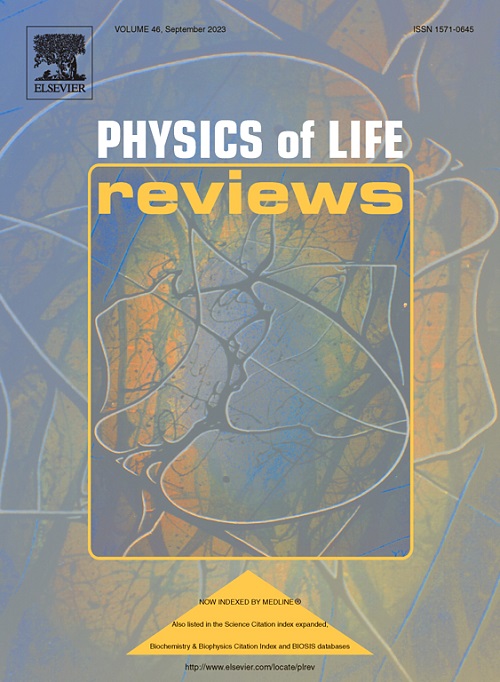Music and animal song follow a mode of extra-genomic evolution similar to that of language
IF 14.3
1区 生物学
Q1 BIOLOGY
引用次数: 0
Abstract
Although we applaud Bickel, Giraud, Zuberbühler, and van Schaik's (2024; hereafter: BGZS) comparison of language and technological evolution, we take issue with their argument that language change entails a "unique" mode of evolution. Other forms of cultural evolution, most notably music, exhibit non-cumulative, ergodic change similar to language. This pattern extends beyond humans: culturally evolving systems in e.g. birdsong and whale song share these properties of non-cumulative cultural evolution. While both music and language may follow similar evolutionary principles, they differ in key aspects: music lacks intrinsic meaning, while language's lexicon remains partially constrained by local conditions such as technological vocabulary. Both systems evolve along cyclical trajectories driven by ergodic mechanisms, affording constant potential for reinvention. Music may, however, serve more as a "uniter" across groups, fostering social bonds with lower barriers to cultural assimilation.
音乐和动物的歌声遵循一种类似于语言的基因组外进化模式
虽然我们为比克尔、吉拉德、祖贝尔·赫勒和范·沙伊克(2024;(下文:BGZS)对语言和技术进化的比较,我们不同意他们的观点,即语言的变化需要一种“独特的”进化模式。其他形式的文化进化,最显著的是音乐,表现出类似语言的非累积的、遍历的变化。这种模式不仅适用于人类:例如鸟鸣和鲸鸣等文化进化系统也具有这些非累积性文化进化的特性。虽然音乐和语言可能遵循相似的进化原则,但它们在关键方面有所不同:音乐缺乏内在意义,而语言的词汇仍然部分受到当地条件(如技术词汇)的限制。这两种系统都是在遍历机制的驱动下,沿着周期性轨迹进化,提供了不断重塑的潜力。然而,音乐可能更多地充当跨群体的“团结者”,促进社会联系,降低文化同化的障碍。
本文章由计算机程序翻译,如有差异,请以英文原文为准。
求助全文
约1分钟内获得全文
求助全文
来源期刊

Physics of Life Reviews
生物-生物物理
CiteScore
20.30
自引率
14.50%
发文量
52
审稿时长
8 days
期刊介绍:
Physics of Life Reviews, published quarterly, is an international journal dedicated to review articles on the physics of living systems, complex phenomena in biological systems, and related fields including artificial life, robotics, mathematical bio-semiotics, and artificial intelligent systems. Serving as a unifying force across disciplines, the journal explores living systems comprehensively—from molecules to populations, genetics to mind, and artificial systems modeling these phenomena. Inviting reviews from actively engaged researchers, the journal seeks broad, critical, and accessible contributions that address recent progress and sometimes controversial accounts in the field.
 求助内容:
求助内容: 应助结果提醒方式:
应助结果提醒方式:


